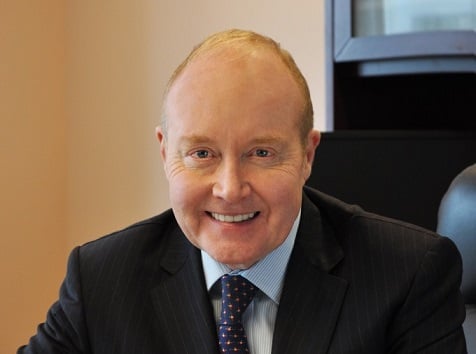At a recent event, Ian Russell from the Investment Industry Association of Canada shared the views of industry insiders

At the Empire Club’s recent Annual Investment Outlook 2017, Ian Russell, President and CEO, the Investment Industry Association of Canada (IIAC) revealed the results of IIAC’s latest survey of investment CEOs. Conducted from November 3 to November 25 last year, the survey coincided with the election result south of the border and, as a result, many responses were in line with the market rally seen in the aftermath of Donald Trump’s election.
“This general optimism post-US election may explain why the majority of CEOs in our survey felt less vulnerable to a major external shock that could affect financial markets,” Russell said. “Of the survey respondents that did feel vulnerable to an economic shock, 44% pointed to a domestic concern – a housing market correction; 33% highlighted a geopolitical uncertainty; and only 22% pointed to a sovereign debt crisis as the most likely shock.”
The survey also asked CEOs about the major trends they see transforming the investment industry. “They answered as we expected – regulatory changes, intense business competition, weakness in commodities markets, demographics, and technology,” said Russell. “Even though these trends are considered significant and may have negative consequences from needed investment and changes to business models, especially in the short-run, many CEOs have taken a positive view on the revenue outlook for this year.”
The mood of positivity in the markets is also reflected in Canadian CEOs’ forecasts for 2016 performance. The majority expect their operating revenue to increase at a faster rate than in 2016, while 35% project operating revenue to grow in line with 2016. Only 5% of those surveyed CEOs expect their operating revenue to increase at a slower rate.
“The results indicated that CEOs expect the retail business will remain the largest contributor to industry revenue this year,” Russell said. “The large integrated firms, in particular, have invested heavily in their wealth management businesses, providing a wide array of financial products and services to improve earnings and return on equity. The retail business benefits from an aging population. Demands for services such as financial and estate planning will escalate.”
The survey also asked respondents to describe their attitudes to robo-advisors or online advice. Approximately 66% of those surveyed believe that robo-advisors are likely to take away business from full-service advisors.
“40% felt robo-advisors were important to build relationships with younger clients (i.e. millennials); and another 40% felt robo-advisors were helpful to service smaller clients,” Russell said. “There will be greater customization of business models that cater to different segments of clientele, offering different mixes of products and services; and different types of online advice models. All delivered through advanced mobile client-advisor interface and use of social media.”
“The goal is designed to retain existing, more sophisticated clients as their needs change, meet the unprecedented demands of millennial investors and improve the cost-effective delivery of advice to smaller investors.”
IIAC also asked Canadian CEOs what they thought about equity financing prospects in small cap private and public markets, and the results were a fairly even split. 47% think 2017 will be a strong year in the Canadian private equity market while 53% think the opposite is true.
“This is a surprising outcome in view of the growing importance and sophistication of Canadian private equity markets in recent years,” Russell said. “Over the last several years, the performance of the public venture markets has been dismal. CEOs confirmed in our survey that these weak conditions are unlikely to change this year. Not a good sign for mid-sized companies needing capital to expand their business.”
Related stories:
How to tackle the challenges that are killing returns
Will 2017 be the year Canadian banks hit a ceiling?



